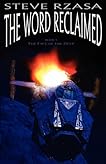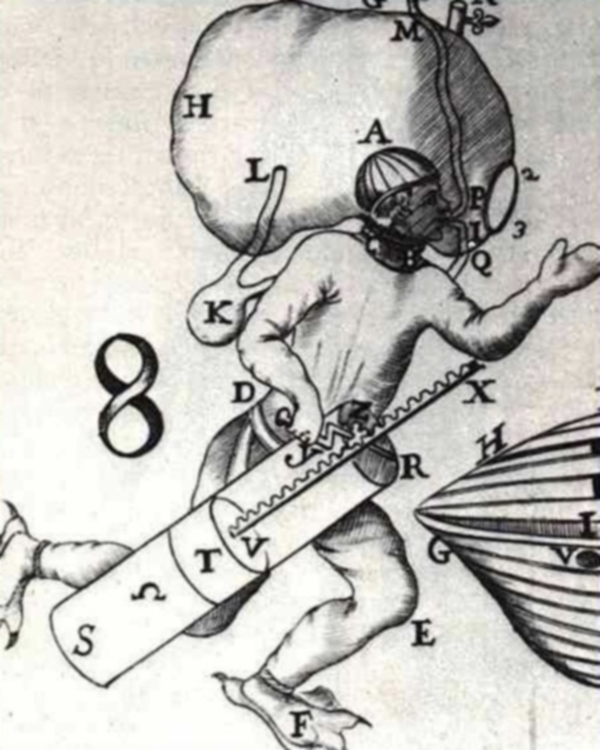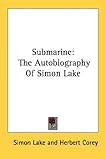Captain Stephen Decatur storms an enemy gunboat.
On Friday, August 3, 1804, the American squadron again approached Tripoli, where Lieutenant Stephen Decatur, now Captain Decatur, months earlier had blown up the captured
USS Philadelphia right under the very noses of the Barbary pirates.
American squadron commodore Captain
Edward Preble again approached Tripoli to show American resolve in protecting U. S. vessels and sailors from pirate attacks. With limited resources, he could not invade Tripoli or completely destroy the fortifications and vessels guarding Tripoli. He could hurt the Barbary pirates enough to make them come to terms with releasing the captured captain and crew of the USS Philadelphia and to help them think twice about attacking other American vessels.
Preble planned a
daring assault. At 2:30 PM, he boldly advanced the squadron to point blank range and commenced the attack.
Earlier, he had dispatched six gun boats, three each under the command of Captains Decatur and Sommers. Prebble ordered them to cause as much damage as possible, board enemy vessels, seize them and their crews and then leave the harbor with their prizes.
He had also directed two bomb ketches, two-masted vessels armed with heavy mortars, to bombard the fortified positions and the town.
The heavy frigate USS Constitution under Preble's command and her attending ketches and brigs were to provide covering fire for the attacking gunboats and fire upon the Pasha's Castle, Fort English, and other fortified positions.
Against their six gunboats, the Barbary pirates had 19 gunboats with full compliments of 30 to 50 crewmen. Each opposing gunboat had a heavy gun in the bow, with two lighter guns in the stern. The shore artillery in the fortified positions held an estimated 120 guns.
Pasha
Yusuf Karamanli of Tripoli treated the upcoming attack with contempt, making a number of disparaging insults about the Americans. After all, he held the captain and crew of the
USS Philadelphia in his dungeons.
The Barbary pirates in the gunboats at anchor beneath Tripoli's heavy guns reflected their leaders' disdain for the Americans. They did not even bother to make ready to sail in case the attack came close to their positions. Some citizens of Tripoli sat on their rooftops to watch their anticipated victory.
As the attack commenced, contrary winds drove Captain Sommers and one of his gunboats away from the enemy gunboats. Sommers was able to work his way to the rear of the enemies gunboats, causing considerable havok there but was unable to seize a gunboat.
Captain Decatur's division of three boats succeeded in reaching the pirate gunboats, aided by Lieutenant James Decatur's gunboat. Lieutenant Decatur was Captain Stephen Decatur's brother and had been assigned to Captain Sommer's boat division.
When the American gunboats approached the enemy, the
USS Constitution and the rest of the American squadron alternately fired shot at the fortifications and grapeshot at the enemy boats, literally sweeping those vessels of all crew on deck. The enemy positions returned fire, succeeding in striking the attacking ships. During the battle, the enemy gunboats attempted several times to surround the squadron as they had successfully done with the USS Philadelphia. Captain Preble and his men beat off those attacks. Through skillful maneuvering, Preble kept the
Constitution where she was needed most to carry the attack to completion.
Captain Decatur in
Boat No. 4 boarded one gunboat with his crew of fifteen men and after hand-to-hand fighting took it as a prize. Lieutenant Tripp in
Boat No. 6 also succeeded in taking one enemy gunboat as a prize. Lieutenant Bainbridge in
Boat No. 5 had the lanteen yard holding the boat's mainsail shot way, preventing him from taking a gunboat. He was able to support the attack with steady musket fire from his boat.
Lieutenant James Decatur in
Boat No. 2 attempted to board an enemy gunboat, which promptly raised a white flag. As Lieutenant Decatur stepped aboard the enemy gunboat, he discovered the surrender was really a ruse. The enemy commander shot James Decatur in the head. As the enemy vessel escaped, James Decatur's second in command Midshipman Brown retrieved him and took him to the
USS Constitution where James Decatur died within minutes of boarding the
Constitution.
Captain Decatur divided his crew between the captured boat and his own boat. As he was returning to the squadron he learned that his brother had been killed. An officer who was highly regarded in the squadron, Lieutenant Decatur's loss was keenly felt. Captain Stephen Decatur immediately set out to find the Barbary pirate captain who had killed his brother. Decatur's reaction was not only the anger of a brother, but also the anger of an officer who had a comrade killed in such a base way.
Accompanied by Midshipman MacDonough and nine sailors, Captain Stephen Decatur succeeded in finding the enemy captain's vessel and boarded it. They faced a full compliment aboard the gunboat. Decatur made his way to the enemy captain, who managed to wound Decatur in the arm and chest with a spear. A stronger man than Decatur, the Barbary pirate captain pressed Decatur to the deck, where he intended to kill him with a dagger.
A Barbary pirate came up with a sword to aid his captain and kill Decatur. One of Decatur's men who had been wounded in both arms threw himself between the pirate's sword and Decatur, suffering a fractured skull in the process. No one is quite sure if this sailor was
Reuben James or
Daniel Frazer, both of whom at various times fought under Decatur.
Nonetheless, this unselfish act allowed Decatur to pull a pistol out of his pocket and shoot the enemy captain. Decatur and his men captured the gunboat and returned to the squadron with a second prize. Only four of Decatur's men were unwounded.
Enemy causalities on board the two prizes taken by Decatur and his men consisted of 33 Barbary pirate officers and crewmen killed. Another 27 Barbary pirates had been captured with 19 seriously wounded.
The action ended at about 5 PM. Lieutenant Decatur was the only person killed. Two officers and eleven sailors were wounded.
As Lieutenant Decatur's brother, it fell to Stephen Decatur to clean his brother's corpse and to prepare him for burial the following day. He sat through the night keeping vigil over his brother's body.
Sometime during the night, Decatur supposedly said to Midshipman Charles Morris as he gazed down at his brother's corpse, "I would rather see him thus, than living with any cloud on his conduct."
Afterward, Captain Decatur's showed great compassion to the wounded pirates captured in the raid, reportedly even asking Captain Preble if the seriously wounded pirates could be returned to Tripoli where they could get better treatment.
In Tripoli, reaction to the American attack was one of panic. Ordinary citizens fled Tripoli. The Pasha was said to be in hiding in a bombproof room.
A leader of Tripoli asked on of the
USS Philadelphia's imprisoned officers if the attackers were truly Americans or devils in human form. He complained that the English, French and Spanish consuls had told the leaders of Tripoli that America was young nation that got its independence because of French strength. They led the Barbary pirates to believe that the Americans could not protect their own merchants so the pirates could expect a brisk business taking American ships and crews for ransom.
The Barbary pirates realized that they had greatly underestimated the resolve and fighting ability of the U. S. Navy. One of the wounded Barbary pirates returned by Captain Preble was supposed to have said, "The Americans in battle are fiercer than lions and after victory, kinder than Muslims."
As shaken as the Pasha was after the August 3rd attack, he was not yet ready to give up the
Philadelphia's crew.
 The Word Reclaimed by Steve Rzasa
The Word Reclaimed by Steve Rzasa














